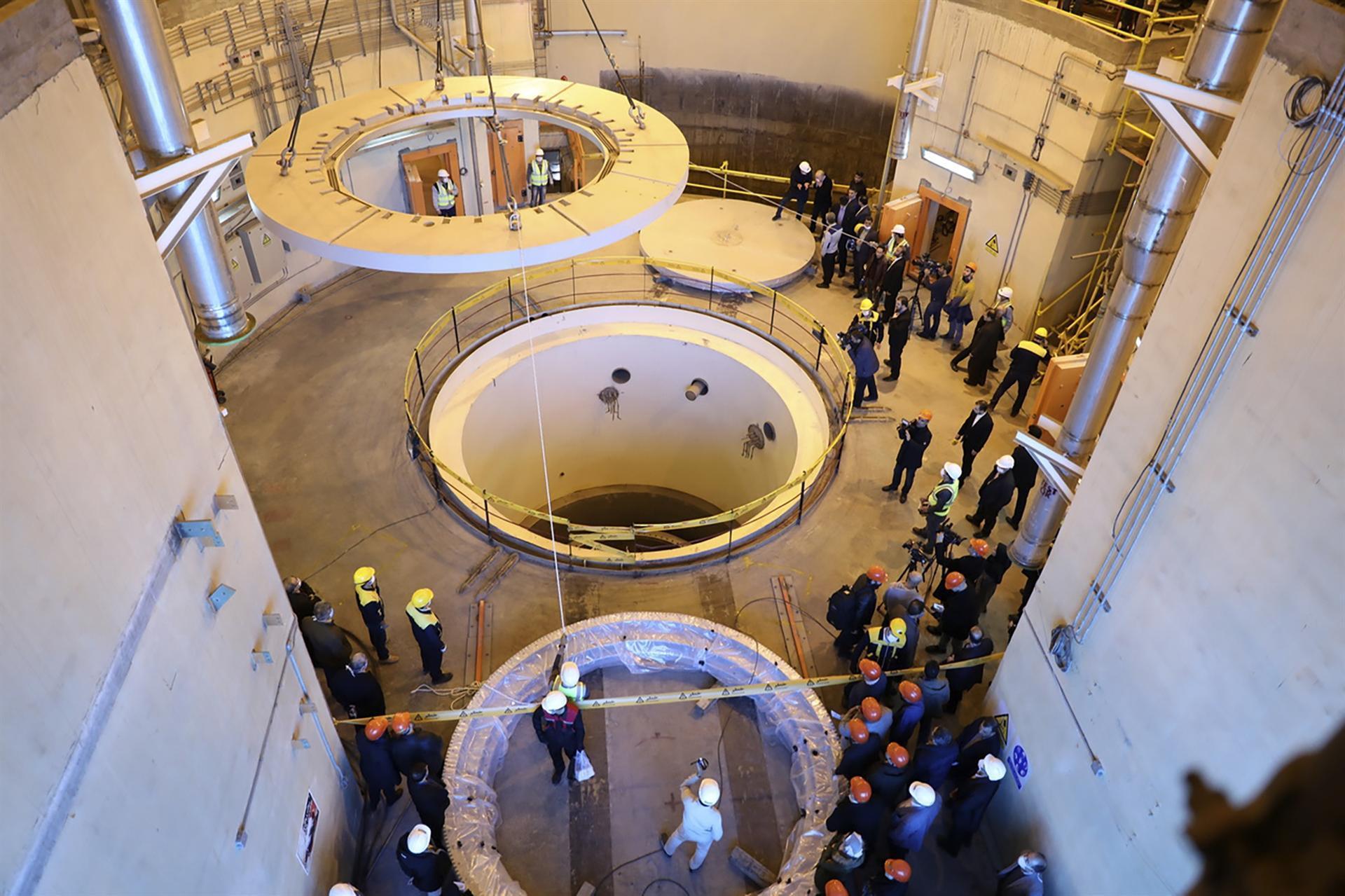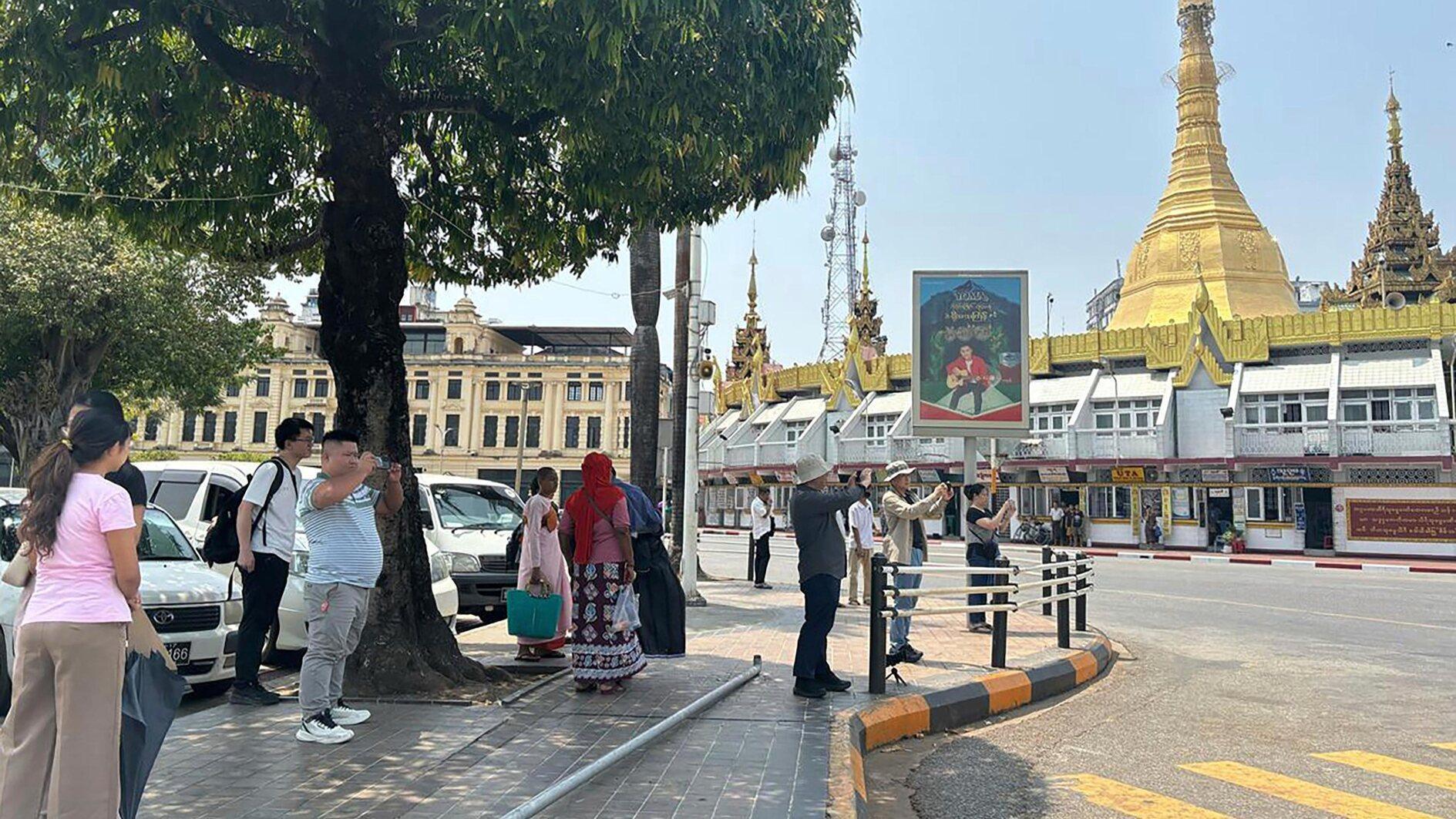Iran's Rouhani says nuclear enrichment at higher level than before 2015 deal
TEHRAN-Reuters

In this Dec. 23, 2019 file photo released by the Atomic Energy Organization of Iran, technicians work at the Arak heavy water reactor's secondary circuit, as officials and media visit the site, near Arak, Iran. (Atomic Energy Organization of Iran via AP)
Iran is now enriching more uranium than Tehran did before it agreed to a nuclear deal with world powers in 2015, Iranian President Hassan Rouhani said on Jan. 16 in a televised speech.
"We are enriching more uranium before the deal was reached ... Pressure has increased on Iran but we continue to progress," Rouhani said.
Iran has gradually scaled back its commitments under the nuclear deal in retaliation to Washington's withdrawal from the pact in 2018 and its reimposition of sanctions that have crippled the country's economy.
U.S. President Donald Trump abandoned the nuclear deal reached under his predecessor Barack Obama, arguing it was too weak and new sanctions would force Iran to accept more stringent terms. Iran says it will not negotiate with sanctions in place.
British Prime Minister Boris Johnson said on Jan. 14: "If we're going to get rid of it, let's replace it and let's replace it with the Trump deal."
Under the mechanism, the EU should inform the other parties - Russia and China as well as Iran - of the move. There would then be 15 days to resolve differences, a deadline that can be extended or ultimately lead to reimposing U.N. sanctions.
In its biggest step away from the agreement yet, Iran announced on Jan. 6 it would abandon all limitations on enriching uranium set down in the pact.
France, Britain and Germany formally triggered the dispute mechanism in Iran's nuclear deal on Jan. 14, the strongest step the Europeans have taken so far to enforce an agreement that requires Iran to curb its nuclear programme.
The European powers said they were acting to avoid a crisis over nuclear proliferation adding to an escalating confrontation in the Middle East. Russia, another signatory to the pact, said it saw no grounds to trigger the mechanism.
The three European nations said they still wanted the 2015 nuclear deal to succeed and were not joining a "maximum pressure" campaign by the United States, which abandoned the pact in 2018 and has reimposed economic sanctions on Iran.
Triggering the mechanism amounts to formally accusing Iran of violating the terms of the deal and could lead eventually to reimposing U.N. sanctions that were lifted under the pact.
Iran has gradually rolled back its commitments under the accord since the United States quit. Tehran argues that it has the right to do so because of Washington's actions.
The flare-up in nuclear diplomacy comes as military confrontation between Washington and Tehran has also reached a new peak.
The United States killed an Iranian general in a drone strike in Baghdad on Jan. 3. Tehran responded a week ago by launching missiles at U.S. targets in Iraq. No Americans were hurt, but hours later Iran shot down a Ukrainian civilian airliner in what its authorities have acknowledged as a tragic mistake, prompting anti-government protests at home.
"American soldiers today are not secure in the region ... We don't want there to be insecurity in the world. We want you to go from here, but not with war. We want you to leave the region intelligently and it's to your benefit," Rouhani had previously said.
















